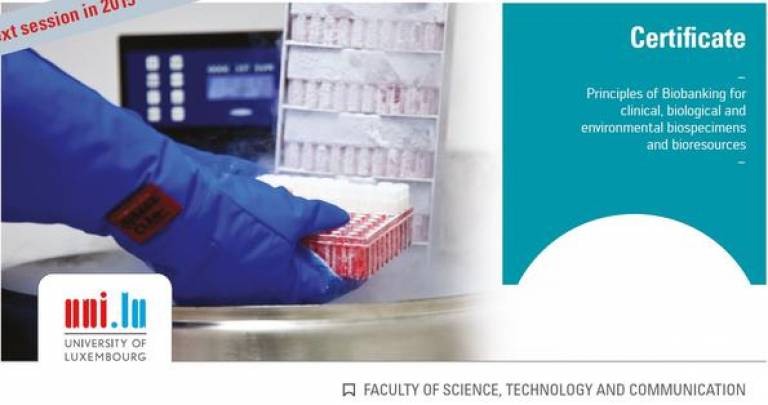A unique integrated biobanking academic course
16 October 2014

| Covering all technical, scientific and legal /ethical aspects of human and environmental biobanking |
| Biospecimens have become a strategic tool for healthcare and medical research, research and conservation in biodiversity, animal, plant and microbial biology as well as in translational research and systems biology through all types of -omics applications. |
| Optimal management of biospecimens and bioresources through biobanking for future research and conservation has now become a new discipline. |
| Why should you attend ? | 1. Understand in depth and produce an oral synthesis of the common principles of practical biobanking. |
| 2. Put different types of biobanks in context and draw conclusions regarding the theoretical basis of their operations. | |
| 3. Apply the scientific basis of biobanking/biospecimen research in Standard Operating Procedure (SOP) development and their implementation in the exploitation of samples for research and conservation. | |
| 4. Question the logistical, practical and technical steps of biobanking, and evaluate their coherence and adequation. | |
| 5. Compare different reports and processes on biobank risk management and mitigation. | |
| 6. Develop Best Practices/Standard Operating Procedures (SOPs). | |
| 7. Validate biobank protocols, training and technology transfers. | |
| 8. Analyze adequation to biobank Quality Management Systems (QMS) and the principles of certification, quality assurance and 3rd party ISO accreditation. | |
| 9. Master the regulatory, legal and ethical aspects of biobanking. | |
| 10. Produce biobank cost analysis and recovery reports. | |
| Entry requirements | Bachelor's Degree or equivalent |
| Good knowledge of English. | |
| Having a vested interest in biobanking | |
| The Course | 3 consecutive weeks of intensive seminars |
| An overall 90 hours of teaching | |
| Sessions starting in June | |
| Entirely taught in English |
 Close
Close

